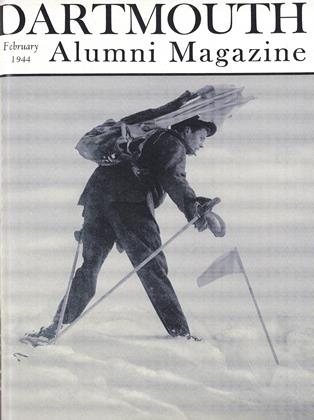Recurring for the moment to the movement for increasing the amount of American history to be taught in the colleges, one must bear in mind that, while the curricula of many secondary schools do not offer enough of that subject, it might easily be true that others offer so much that a repetition of such a course in college would be entirely superfluous. Hence the suggestion that investigation be made among entering classes to discover how many of their component students reveal a sufficient familiarity with American history to make further requirements superfluous, and how many display such a lack of knowledge of their own country's past as to warrant subjecting them to additional training therein. In other words, should not this matter depend on the requirements of the individual case? Measurement of the knowledge of our history possessed by individual students ought not to be a difficult task, and the results would probably be helpful.
That a working knowledge of American history should be held an essential for every properly educated man seems too obvious for dispute. That too many acquire the A.B. degree without such knowledge seems to be fairly well established by recent questionnaires. To require such collegiate study on the part of all would doubtless in some cases involve a profitless threshing of old straw, but it should be possible to eliminate those and confine attention to those with insufficient acquaintance. In any case, every educated American citizen should know enough of his country's history to enlighten him concerning its political, military and cultural past; and the one great problem is to discover those so deplorably lacking as to warrant an effort to make good the deficiency before declaring them to be worthy of the degree of a Bachelor of Arts.
 View Full Issue
View Full Issue
More From This Issue
-
 Lettter from the Editor
Lettter from the EditorLetters from Dartmouth Men in the Armed Forces
February 1944 -
 Article
ArticleWOMEN OF DARTMOUTH
February 1944 By BILL CUNNINGHAM '19 -
 Article
ArticleTHE POSTWAR MAJOR
February 1944 By Harold E: B. Speight h'28, -
 Class Notes
Class Notes1918
February 1944 By ERNEST H. EARLEY, DONALD L. BARR -
 Class Notes
Class Notes1934
February 1944 By WILLIAM C. EMBRY -
 Article
ArticleBUTTERFIELD HALL
February 1944 By LEON BURR RICHARDSON 'OO













